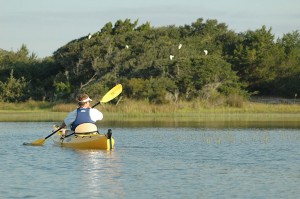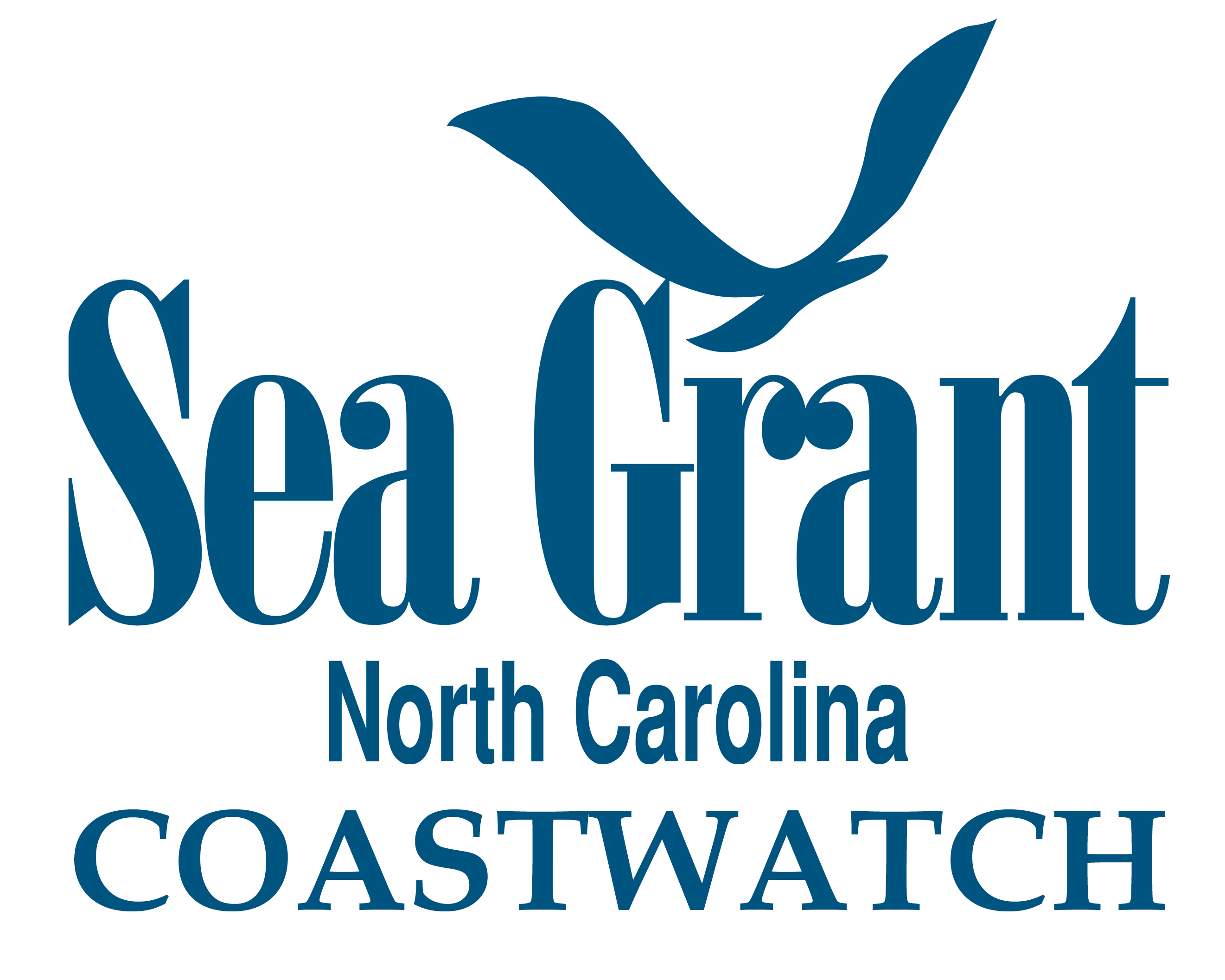By BRIAN EFLAND
As marina fuel prices continue to rise, recreational and commercial boaters are — by necessity — seeking ways to decrease operating costs and increase fuel efficiency.
Compared to automobiles, boats are not efficient. For example, a small 18-to-21-foot outboard vessel with a fuel tank capacity ranging from 20 to 50 gallons averages 4 to 8 miles per gallon. A twin-engine offshore vessel with a fuel tank capacity ranging from 80 to 200 gallons may average only 1 to 3 mpg. In either case, a boater may suffer sticker shock at the pump this season with fuel prices potentially exceeding $4 per gallon at marinas in North Carolina.

Paddling may not be the quickest way to get from here to there, but it saves o fuel costs. Photo by Nate Bachelor.
The following fuel saving tips should help boaters save money on their next boating trip — whether it is an offshore fishing excursion or an inshore cruise:
Find the optimum cruising speed: Every boat has a cruising speed at which a certain engine power and vessel trim, or the angle of the boat in relationship to the surface of the water, will result in maximum efficiency. A GPS unit linked to a fuel flow meter can calculate fuel economy automatically. This enables a boater to adjust power and trim settings based on sea conditions.
Maintain the vessel: A properly maintained engine produces power more efficiently. Follow manufacturerer-recommended maintenance schedules for fuel filters, water separators, oil changes, valve adjustments, etc. Be certain the propeller is the correct one for the vessel. Propeller diameter, pitch and the number of blades all can affect fuel efficiency.This information is available on engine or vessel manufacturers’ websites.
Reduce weight: One of the easiest ways to increase efficiency is to leave nonessential items at the dock. It takes 2.5 extra horsepower to plane each additional 100 pounds, and an extra gallon per hour of gasoline is burned for each additional 400 pounds in passengers, fuel and gear. However, no fuel savings is worth omitting safety equipment. Check the Coastwatch Spring 2012 issue for “Safe Boating Saves Lives.”
Clean vessel bottom: Marine fouling, such as barnacles and slime, will induce unnecessary drag on a vessel and decrease fuel efficiency rapidly. If the vessel is moored in a wet slip, use the proper bottom paint for the hull composition and marine environment. Check with a marine supply provider, or do online research, regarding eco-friendly bottom paints to decrease impacts on the marine environment.
Use good seamanship: Take advantage of favorable sea conditions such as a following wind or tide to decrease engine load. Steer a straight course for the shortest path to your destination. Use autopilot if available to minimize oversteer.
Search for best marina gas prices: Marina fuel prices can vary considerably, so check fuel prices via VHF radio or cell phone before you fill up.
Use green recreational fishing methods: For inshore waters, use alternate methods to reach the fishing grounds, such as paddle fishing from a kayak, paddleboard or canoe. These methods are good for your health while providing a quiet, shallow fishing platform that enables you to reach remote backwater areas. Download Paddle Fishing: An Introductory Guide or request a copy from www.ncseagrant.org. Read “Picking Up the Paddle: Fuel-Free Fishing in North Carolina” in the Holiday 2008 issue of Coastwatch.
For more fuel-efficiency tips, visit: seagrant.uaf. edu/fuel. Download Buying a Recreational Fishing Boat or request a copy from www.ncseagrant.org.
This article was published in the Summer 2012 issue of Coastwatch.
For contact information and reprint requests, visit ncseagrant.ncsu.edu/coastwatch/contact/.
